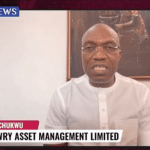In October 2020, Nigeria bore witness to a historic moment as thousands of its youth took to the streets, united by a common cause: #EndSARS. The hashtag was synonymous with the call for an end to the Special Anti-Robbery Squad (SARS), a police unit notorious for alleged brutality, harassment, and human rights abuses.
This protest represented more than just opposition to a single unit; it underscored the urgent need for comprehensive police reform in Nigeria. Wasiu Salami writes on the imperative for genuine police reform in Nigeria
An Unrelenting Struggle for Justice:
The #EndSARS movement emerged from years of grievances and frustration with law enforcement. Young Nigerians, in particular, had grown weary of unchecked police brutality, extortion, and extrajudicial killings. The protest symbolized a collective cry for justice and accountability.
The Escalation of #EndSARS:
The movement, primarily organized on social media, quickly gained momentum. Peaceful protests and a demand for police reform resonated with Nigerians from all walks of life. However, what began as a peaceful demonstration soon took a tragic turn with the alleged use of excessive force by security forces, leading to several casualties. This brutal crackdown further fueled the public’s demand for police reform.
The Promise of Reform:
In response to the protests, the Nigerian government announced the disbandment of SARS and promised a comprehensive reform of the police force. While this was a step in the right direction, it did not quell the protesters’ demands. They were resolute in their call for broader institutional reform and accountability mechanisms to ensure meaningful change.
A Broader Call for Reform:
The #EndSARS movement was not limited to abolishing SARS but encompassed a call for an overhaul of the entire police force. Key demands included improved police training, better remuneration for officers, and the establishment of an independent body to investigate misconduct and abuse. The focus shifted from just ending a rogue unit to rebuilding trust in the Nigerian police.
The International Solidarity:
#EndSARS garnered global attention and support. International figures, including celebrities and human rights organizations, voiced their solidarity with the Nigerian youth, putting pressure on the Nigerian government to act swiftly and responsibly. This international awareness emphasized the need for effective police reform.
The Ongoing Struggle:
While the Nigerian government made commitments to address the demands of the protesters, the #EndSARS movement serves as a reminder that genuine reform is a long-term endeavor. The Nigerian people remain vigilant, continuing to advocate for accountability and a police force that serves and protects them.
In conclusion, Nigeria’s #EndSARS protest represented a pivotal moment in the country’s history. It highlighted the undeniable need for profound police reform. Reforming the police is not just a matter of ending a single unit but rather an overhaul of the entire system, with a focus on accountability, professionalism, and adherence to human rights. The struggle for justice and police reform continues, and its success will undoubtedly shape the future of law enforcement in Nigeria, providing a safer and more just society for all its citizens.
In October 2020, Nigeria bore witness to a historic moment as thousands of its youth took to the streets, united by a common cause: #EndSARS. The hashtag was synonymous with the call for an end to the Special Anti-Robbery Squad (SARS), a police unit notorious for alleged brutality, harassment, and human rights abuses.
This protest represented more than just opposition to a single unit; it underscored the urgent need for comprehensive police reform in Nigeria. Wasiu Salami writes on the imperative for genuine police reform in Nigeria
An Unrelenting Struggle for Justice:
The #EndSARS movement emerged from years of grievances and frustration with law enforcement. Young Nigerians, in particular, had grown weary of unchecked police brutality, extortion, and extrajudicial killings. The protest symbolized a collective cry for justice and accountability.
The Escalation of #EndSARS:
The movement, primarily organized on social media, quickly gained momentum. Peaceful protests and a demand for police reform resonated with Nigerians from all walks of life. However, what began as a peaceful demonstration soon took a tragic turn with the alleged use of excessive force by security forces, leading to several casualties. This brutal crackdown further fueled the public’s demand for police reform.
The Promise of Reform:
In response to the protests, the Nigerian government announced the disbandment of SARS and promised a comprehensive reform of the police force. While this was a step in the right direction, it did not quell the protesters’ demands. They were resolute in their call for broader institutional reform and accountability mechanisms to ensure meaningful change.
A Broader Call for Reform:
The #EndSARS movement was not limited to abolishing SARS but encompassed a call for an overhaul of the entire police force. Key demands included improved police training, better remuneration for officers, and the establishment of an independent body to investigate misconduct and abuse. The focus shifted from just ending a rogue unit to rebuilding trust in the Nigerian police.
The International Solidarity:
#EndSARS garnered global attention and support. International figures, including celebrities and human rights organizations, voiced their solidarity with the Nigerian youth, putting pressure on the Nigerian government to act swiftly and responsibly. This international awareness emphasized the need for effective police reform.
The Ongoing Struggle:
While the Nigerian government made commitments to address the demands of the protesters, the #EndSARS movement serves as a reminder that genuine reform is a long-term endeavor. The Nigerian people remain vigilant, continuing to advocate for accountability and a police force that serves and protects them.
In conclusion, Nigeria’s #EndSARS protest represented a pivotal moment in the country’s history. It highlighted the undeniable need for profound police reform. Reforming the police is not just a matter of ending a single unit but rather an overhaul of the entire system, with a focus on accountability, professionalism, and adherence to human rights. The struggle for justice and police reform continues, and its success will undoubtedly shape the future of law enforcement in Nigeria, providing a safer and more just society for all its citizens.
In October 2020, Nigeria bore witness to a historic moment as thousands of its youth took to the streets, united by a common cause: #EndSARS. The hashtag was synonymous with the call for an end to the Special Anti-Robbery Squad (SARS), a police unit notorious for alleged brutality, harassment, and human rights abuses.
This protest represented more than just opposition to a single unit; it underscored the urgent need for comprehensive police reform in Nigeria. Wasiu Salami writes on the imperative for genuine police reform in Nigeria
An Unrelenting Struggle for Justice:
The #EndSARS movement emerged from years of grievances and frustration with law enforcement. Young Nigerians, in particular, had grown weary of unchecked police brutality, extortion, and extrajudicial killings. The protest symbolized a collective cry for justice and accountability.
The Escalation of #EndSARS:
The movement, primarily organized on social media, quickly gained momentum. Peaceful protests and a demand for police reform resonated with Nigerians from all walks of life. However, what began as a peaceful demonstration soon took a tragic turn with the alleged use of excessive force by security forces, leading to several casualties. This brutal crackdown further fueled the public’s demand for police reform.
The Promise of Reform:
In response to the protests, the Nigerian government announced the disbandment of SARS and promised a comprehensive reform of the police force. While this was a step in the right direction, it did not quell the protesters’ demands. They were resolute in their call for broader institutional reform and accountability mechanisms to ensure meaningful change.
A Broader Call for Reform:
The #EndSARS movement was not limited to abolishing SARS but encompassed a call for an overhaul of the entire police force. Key demands included improved police training, better remuneration for officers, and the establishment of an independent body to investigate misconduct and abuse. The focus shifted from just ending a rogue unit to rebuilding trust in the Nigerian police.
The International Solidarity:
#EndSARS garnered global attention and support. International figures, including celebrities and human rights organizations, voiced their solidarity with the Nigerian youth, putting pressure on the Nigerian government to act swiftly and responsibly. This international awareness emphasized the need for effective police reform.
The Ongoing Struggle:
While the Nigerian government made commitments to address the demands of the protesters, the #EndSARS movement serves as a reminder that genuine reform is a long-term endeavor. The Nigerian people remain vigilant, continuing to advocate for accountability and a police force that serves and protects them.
In conclusion, Nigeria’s #EndSARS protest represented a pivotal moment in the country’s history. It highlighted the undeniable need for profound police reform. Reforming the police is not just a matter of ending a single unit but rather an overhaul of the entire system, with a focus on accountability, professionalism, and adherence to human rights. The struggle for justice and police reform continues, and its success will undoubtedly shape the future of law enforcement in Nigeria, providing a safer and more just society for all its citizens.
In October 2020, Nigeria bore witness to a historic moment as thousands of its youth took to the streets, united by a common cause: #EndSARS. The hashtag was synonymous with the call for an end to the Special Anti-Robbery Squad (SARS), a police unit notorious for alleged brutality, harassment, and human rights abuses.
This protest represented more than just opposition to a single unit; it underscored the urgent need for comprehensive police reform in Nigeria. Wasiu Salami writes on the imperative for genuine police reform in Nigeria
An Unrelenting Struggle for Justice:
The #EndSARS movement emerged from years of grievances and frustration with law enforcement. Young Nigerians, in particular, had grown weary of unchecked police brutality, extortion, and extrajudicial killings. The protest symbolized a collective cry for justice and accountability.
The Escalation of #EndSARS:
The movement, primarily organized on social media, quickly gained momentum. Peaceful protests and a demand for police reform resonated with Nigerians from all walks of life. However, what began as a peaceful demonstration soon took a tragic turn with the alleged use of excessive force by security forces, leading to several casualties. This brutal crackdown further fueled the public’s demand for police reform.
The Promise of Reform:
In response to the protests, the Nigerian government announced the disbandment of SARS and promised a comprehensive reform of the police force. While this was a step in the right direction, it did not quell the protesters’ demands. They were resolute in their call for broader institutional reform and accountability mechanisms to ensure meaningful change.
A Broader Call for Reform:
The #EndSARS movement was not limited to abolishing SARS but encompassed a call for an overhaul of the entire police force. Key demands included improved police training, better remuneration for officers, and the establishment of an independent body to investigate misconduct and abuse. The focus shifted from just ending a rogue unit to rebuilding trust in the Nigerian police.
The International Solidarity:
#EndSARS garnered global attention and support. International figures, including celebrities and human rights organizations, voiced their solidarity with the Nigerian youth, putting pressure on the Nigerian government to act swiftly and responsibly. This international awareness emphasized the need for effective police reform.
The Ongoing Struggle:
While the Nigerian government made commitments to address the demands of the protesters, the #EndSARS movement serves as a reminder that genuine reform is a long-term endeavor. The Nigerian people remain vigilant, continuing to advocate for accountability and a police force that serves and protects them.
In conclusion, Nigeria’s #EndSARS protest represented a pivotal moment in the country’s history. It highlighted the undeniable need for profound police reform. Reforming the police is not just a matter of ending a single unit but rather an overhaul of the entire system, with a focus on accountability, professionalism, and adherence to human rights. The struggle for justice and police reform continues, and its success will undoubtedly shape the future of law enforcement in Nigeria, providing a safer and more just society for all its citizens.
In October 2020, Nigeria bore witness to a historic moment as thousands of its youth took to the streets, united by a common cause: #EndSARS. The hashtag was synonymous with the call for an end to the Special Anti-Robbery Squad (SARS), a police unit notorious for alleged brutality, harassment, and human rights abuses.
This protest represented more than just opposition to a single unit; it underscored the urgent need for comprehensive police reform in Nigeria. Wasiu Salami writes on the imperative for genuine police reform in Nigeria
An Unrelenting Struggle for Justice:
The #EndSARS movement emerged from years of grievances and frustration with law enforcement. Young Nigerians, in particular, had grown weary of unchecked police brutality, extortion, and extrajudicial killings. The protest symbolized a collective cry for justice and accountability.
The Escalation of #EndSARS:
The movement, primarily organized on social media, quickly gained momentum. Peaceful protests and a demand for police reform resonated with Nigerians from all walks of life. However, what began as a peaceful demonstration soon took a tragic turn with the alleged use of excessive force by security forces, leading to several casualties. This brutal crackdown further fueled the public’s demand for police reform.
The Promise of Reform:
In response to the protests, the Nigerian government announced the disbandment of SARS and promised a comprehensive reform of the police force. While this was a step in the right direction, it did not quell the protesters’ demands. They were resolute in their call for broader institutional reform and accountability mechanisms to ensure meaningful change.
A Broader Call for Reform:
The #EndSARS movement was not limited to abolishing SARS but encompassed a call for an overhaul of the entire police force. Key demands included improved police training, better remuneration for officers, and the establishment of an independent body to investigate misconduct and abuse. The focus shifted from just ending a rogue unit to rebuilding trust in the Nigerian police.
The International Solidarity:
#EndSARS garnered global attention and support. International figures, including celebrities and human rights organizations, voiced their solidarity with the Nigerian youth, putting pressure on the Nigerian government to act swiftly and responsibly. This international awareness emphasized the need for effective police reform.
The Ongoing Struggle:
While the Nigerian government made commitments to address the demands of the protesters, the #EndSARS movement serves as a reminder that genuine reform is a long-term endeavor. The Nigerian people remain vigilant, continuing to advocate for accountability and a police force that serves and protects them.
In conclusion, Nigeria’s #EndSARS protest represented a pivotal moment in the country’s history. It highlighted the undeniable need for profound police reform. Reforming the police is not just a matter of ending a single unit but rather an overhaul of the entire system, with a focus on accountability, professionalism, and adherence to human rights. The struggle for justice and police reform continues, and its success will undoubtedly shape the future of law enforcement in Nigeria, providing a safer and more just society for all its citizens.
In October 2020, Nigeria bore witness to a historic moment as thousands of its youth took to the streets, united by a common cause: #EndSARS. The hashtag was synonymous with the call for an end to the Special Anti-Robbery Squad (SARS), a police unit notorious for alleged brutality, harassment, and human rights abuses.
This protest represented more than just opposition to a single unit; it underscored the urgent need for comprehensive police reform in Nigeria. Wasiu Salami writes on the imperative for genuine police reform in Nigeria
An Unrelenting Struggle for Justice:
The #EndSARS movement emerged from years of grievances and frustration with law enforcement. Young Nigerians, in particular, had grown weary of unchecked police brutality, extortion, and extrajudicial killings. The protest symbolized a collective cry for justice and accountability.
The Escalation of #EndSARS:
The movement, primarily organized on social media, quickly gained momentum. Peaceful protests and a demand for police reform resonated with Nigerians from all walks of life. However, what began as a peaceful demonstration soon took a tragic turn with the alleged use of excessive force by security forces, leading to several casualties. This brutal crackdown further fueled the public’s demand for police reform.
The Promise of Reform:
In response to the protests, the Nigerian government announced the disbandment of SARS and promised a comprehensive reform of the police force. While this was a step in the right direction, it did not quell the protesters’ demands. They were resolute in their call for broader institutional reform and accountability mechanisms to ensure meaningful change.
A Broader Call for Reform:
The #EndSARS movement was not limited to abolishing SARS but encompassed a call for an overhaul of the entire police force. Key demands included improved police training, better remuneration for officers, and the establishment of an independent body to investigate misconduct and abuse. The focus shifted from just ending a rogue unit to rebuilding trust in the Nigerian police.
The International Solidarity:
#EndSARS garnered global attention and support. International figures, including celebrities and human rights organizations, voiced their solidarity with the Nigerian youth, putting pressure on the Nigerian government to act swiftly and responsibly. This international awareness emphasized the need for effective police reform.
The Ongoing Struggle:
While the Nigerian government made commitments to address the demands of the protesters, the #EndSARS movement serves as a reminder that genuine reform is a long-term endeavor. The Nigerian people remain vigilant, continuing to advocate for accountability and a police force that serves and protects them.
In conclusion, Nigeria’s #EndSARS protest represented a pivotal moment in the country’s history. It highlighted the undeniable need for profound police reform. Reforming the police is not just a matter of ending a single unit but rather an overhaul of the entire system, with a focus on accountability, professionalism, and adherence to human rights. The struggle for justice and police reform continues, and its success will undoubtedly shape the future of law enforcement in Nigeria, providing a safer and more just society for all its citizens.
In October 2020, Nigeria bore witness to a historic moment as thousands of its youth took to the streets, united by a common cause: #EndSARS. The hashtag was synonymous with the call for an end to the Special Anti-Robbery Squad (SARS), a police unit notorious for alleged brutality, harassment, and human rights abuses.
This protest represented more than just opposition to a single unit; it underscored the urgent need for comprehensive police reform in Nigeria. Wasiu Salami writes on the imperative for genuine police reform in Nigeria
An Unrelenting Struggle for Justice:
The #EndSARS movement emerged from years of grievances and frustration with law enforcement. Young Nigerians, in particular, had grown weary of unchecked police brutality, extortion, and extrajudicial killings. The protest symbolized a collective cry for justice and accountability.
The Escalation of #EndSARS:
The movement, primarily organized on social media, quickly gained momentum. Peaceful protests and a demand for police reform resonated with Nigerians from all walks of life. However, what began as a peaceful demonstration soon took a tragic turn with the alleged use of excessive force by security forces, leading to several casualties. This brutal crackdown further fueled the public’s demand for police reform.
The Promise of Reform:
In response to the protests, the Nigerian government announced the disbandment of SARS and promised a comprehensive reform of the police force. While this was a step in the right direction, it did not quell the protesters’ demands. They were resolute in their call for broader institutional reform and accountability mechanisms to ensure meaningful change.
A Broader Call for Reform:
The #EndSARS movement was not limited to abolishing SARS but encompassed a call for an overhaul of the entire police force. Key demands included improved police training, better remuneration for officers, and the establishment of an independent body to investigate misconduct and abuse. The focus shifted from just ending a rogue unit to rebuilding trust in the Nigerian police.
The International Solidarity:
#EndSARS garnered global attention and support. International figures, including celebrities and human rights organizations, voiced their solidarity with the Nigerian youth, putting pressure on the Nigerian government to act swiftly and responsibly. This international awareness emphasized the need for effective police reform.
The Ongoing Struggle:
While the Nigerian government made commitments to address the demands of the protesters, the #EndSARS movement serves as a reminder that genuine reform is a long-term endeavor. The Nigerian people remain vigilant, continuing to advocate for accountability and a police force that serves and protects them.
In conclusion, Nigeria’s #EndSARS protest represented a pivotal moment in the country’s history. It highlighted the undeniable need for profound police reform. Reforming the police is not just a matter of ending a single unit but rather an overhaul of the entire system, with a focus on accountability, professionalism, and adherence to human rights. The struggle for justice and police reform continues, and its success will undoubtedly shape the future of law enforcement in Nigeria, providing a safer and more just society for all its citizens.
In October 2020, Nigeria bore witness to a historic moment as thousands of its youth took to the streets, united by a common cause: #EndSARS. The hashtag was synonymous with the call for an end to the Special Anti-Robbery Squad (SARS), a police unit notorious for alleged brutality, harassment, and human rights abuses.
This protest represented more than just opposition to a single unit; it underscored the urgent need for comprehensive police reform in Nigeria. Wasiu Salami writes on the imperative for genuine police reform in Nigeria
An Unrelenting Struggle for Justice:
The #EndSARS movement emerged from years of grievances and frustration with law enforcement. Young Nigerians, in particular, had grown weary of unchecked police brutality, extortion, and extrajudicial killings. The protest symbolized a collective cry for justice and accountability.
The Escalation of #EndSARS:
The movement, primarily organized on social media, quickly gained momentum. Peaceful protests and a demand for police reform resonated with Nigerians from all walks of life. However, what began as a peaceful demonstration soon took a tragic turn with the alleged use of excessive force by security forces, leading to several casualties. This brutal crackdown further fueled the public’s demand for police reform.
The Promise of Reform:
In response to the protests, the Nigerian government announced the disbandment of SARS and promised a comprehensive reform of the police force. While this was a step in the right direction, it did not quell the protesters’ demands. They were resolute in their call for broader institutional reform and accountability mechanisms to ensure meaningful change.
A Broader Call for Reform:
The #EndSARS movement was not limited to abolishing SARS but encompassed a call for an overhaul of the entire police force. Key demands included improved police training, better remuneration for officers, and the establishment of an independent body to investigate misconduct and abuse. The focus shifted from just ending a rogue unit to rebuilding trust in the Nigerian police.
The International Solidarity:
#EndSARS garnered global attention and support. International figures, including celebrities and human rights organizations, voiced their solidarity with the Nigerian youth, putting pressure on the Nigerian government to act swiftly and responsibly. This international awareness emphasized the need for effective police reform.
The Ongoing Struggle:
While the Nigerian government made commitments to address the demands of the protesters, the #EndSARS movement serves as a reminder that genuine reform is a long-term endeavor. The Nigerian people remain vigilant, continuing to advocate for accountability and a police force that serves and protects them.
In conclusion, Nigeria’s #EndSARS protest represented a pivotal moment in the country’s history. It highlighted the undeniable need for profound police reform. Reforming the police is not just a matter of ending a single unit but rather an overhaul of the entire system, with a focus on accountability, professionalism, and adherence to human rights. The struggle for justice and police reform continues, and its success will undoubtedly shape the future of law enforcement in Nigeria, providing a safer and more just society for all its citizens.














